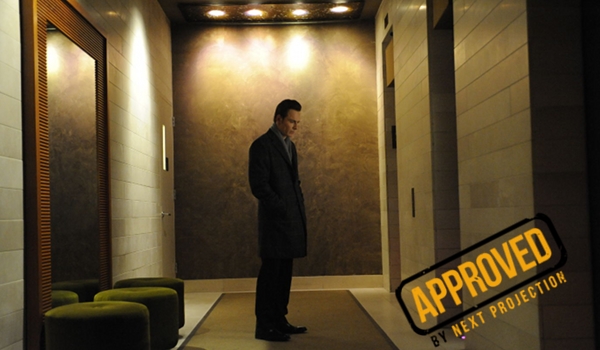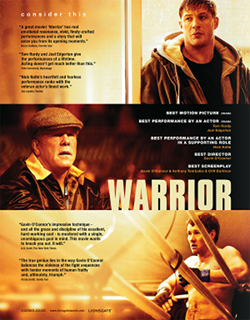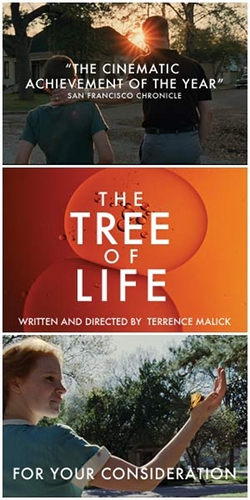Review: Shame (2011)
For an alternate take on Shame, check out Jason McKiernan’s review.
Not only is Steve McQueen a great filmmaker, but a true artist in every sense of the word. With his first film, Hunger, he displayed his potential for crafting a nuanced, layered, singular vision. But apparently, that was just the practice round. Because what McQueen has accomplished with his latest film, Shame, is the kind of achievement most filmmakers can only dream of accomplishing.
The film follows Brandon (Michael Fassbender), a sex addict living in Manhattan. But no one around him seems to know of this addiction. He’s successful in his high paying job. He gets along with everyone. He’s good looking, and seems to be living the bachelor’s dream. But underneath Brandon’s successful facade are insuppressible sexual desires. Things get even more complicated when his sister (Carey Mulligan) crashes at his place for a few days; something that he is clearly frustrated with.
McQueen isn’t interested in a redemption story, or one where the addict is miraculously cured. He’s interested in exploring Brandon’s psyche, and through him, the frailty of the human condition. With screenwriter Abi Morgan and his now frequent collaborator, Michael Fassbender, McQueen weaves a tapestry of damaged people, and poses big questions of whether or not they can ever be free of what they do to themselves, or if they can be blamed for their faults. Brandon can’t commit to anyone due to his compulsions. In an extended conversation while on a date, he explains that he doesn’t see the point in commitment at all. But does he really believe what he’s saying? Or is it that his condition is a result of deeper issues? Surprisingly, he doesn’t sleep with this woman immediately, but attempts to at a later time, only to not be able to “rise to the occasion”. It would seem that he’s incapable of performing an act he could do in his sleep with someone that may genuinely care about him, and that he himself may actually care about.
It’s a terrifying thought to him, as he clearly has spent much of his life pushing others away, albeit in subtle means. He has superficial friendships, but no relationship in his life seems to be meaningful, including that with his sister, who wants to be closer to him because they are the only family they’ve got. So why does he push her away? In a scene where she crawls into bed with him, it seems innocent enough, but he furiously yells at her to get out. Is he afraid of losing control with her? Does his condition have such a hold on him that he wouldn’t even be able to draw a line there? The ways in which McQueen and his director of photography Sean Bobbit shoot their scenes together hint at this. How he looks at her naked body for a moment after finding her having let herself into his apartment and taking a shower, how their faces get increasingly close to one another during a heated argument, how his body goes rigid whenever she touches him.
None of these scenes would work, however, without two great actors at the top of their game. Carey Mulligan gives one of her most deeply felt performances to date in a role that goes very much against type as Brandon’s sister. She is a very flirtatious personality, and presents a carefree exterior, but is clearly a very damaged individual on the inside. She’s a cutter, and her past relationships have suffered for it. Fassbender, on the other hand, presents a completely lived-in, masterful portrayal of a man struggling with his own inability to control his physical urges. Ironically, it’s Fassbender’s control of body language that conveys so much by saying so little. He becomes rigid when dealing with the challenge of trying to control his urges, and loosens up considerably when putting on his social act and giving in to his desires. The conflict within him rises to a boiling point and explodes in a montage that beautifully weaves the manipulation of time through graceful editing with Harry Escott’s powerful score, but keep’s Fassbender’s performance front and center. And what a tremendous performance it is, seeing him fully portray a man on the brink of self-destruction in a free-fall.
And really, it’s to the actor’s credit that even amongst such a powerhouse performance, he never overshadows McQueen’s vision for the film. And what a vision it is! The film never misses a beat and sticks the landing in such a tremendous way. McQueen is a director so intent on treating his audience like intelligent adults who can handle a challenge that he feels no need to spoon-feed us any information, ham-fisted metaphors, or tie everything up in a neat bow. There are ambiguities throughout that can be interpreted in a number of ways. But what McQueen is really trying to do here is present a raw, deeply felt portrait of damaged individuals, and asks the audience to make up their own minds if they are to blame for their destructive behavior, or if it’s been programmed into their very existence. Brandon’s sister seems to think it’s the latter, when she leaves a tearful voicemail for him, saying “We’re not bad people, we just come from bad places.”
And that’s what the film is really about, the frailty of the human condition and whether or not our actions define us, and how we live with ourselves and the shame we feel for those actions we don’t fully understand ourselves. McQueen has crafted something of a masterpiece here. Rarely does a film speak so profoundly and in such a riveting, stylish manner. Directors like McQueen are a different breed, and it’s such a blessing that there’s still room in the filmmaking world for an artist of this caliber to have the freedom to make the kind of challenging, powerful films he wants to.
-
Mark
-
http://twitter.com/NextProjection Christopher Misch
-
indianajones7895
-
http://www.facebook.com/people/Kevin-Ketchum/1523160194 Kevin Ketchum
-
Guest
-
http://twitter.com/NextProjection Christopher Misch
-
http://twitter.com/NextProjection Christopher Misch
-
http://sixthreel.blogspot.com/ Jim Campbell
-
http://sixthreel.blogspot.com/ Jim Campbell
-
http://nextprojection.com/2011/12/01/review-shame-2011-2/ Review: Shame (2011) | Next Projection

















